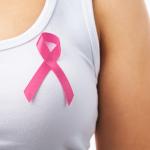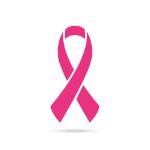The utility of mammography screening for breast cancer has been a bone of contention, but for some women it has been a life-saver.
breast cancer
If you read only the headlines this past weekend, your holiday festivities might have been less fun, since the message seemed to be that consuming any amount of alcohol was a certain precursor to developing breast cancer.
Actress Shannen Doherty revealed in an Instagram message that she is in remission from breast cancer.
Here are the headlines:
From UPI: Study links soy consumption to breast cancer survival.
http://cdn.nutrition.org/content/early/2017/02/08/cdn.117.000422
Recently a breast cancer awareness campaign has been popping up on women's Facebook messengers, including my own.
Recently, we wrote about the challenges that women with dense breasts face with mammograms — the primary tool used to screen for breast cancer.
Breast cancer is one of the most intensively investigated forms of cancer. While the research has not yet resulted in a cure, it has informed decisions about how to treat its various forms.
Since we love awareness days and months, October gave us the chance to promote Breast Cancer education and prevention. In that spirit, we invited Stanford-educated, surgical oncologist Dr.












